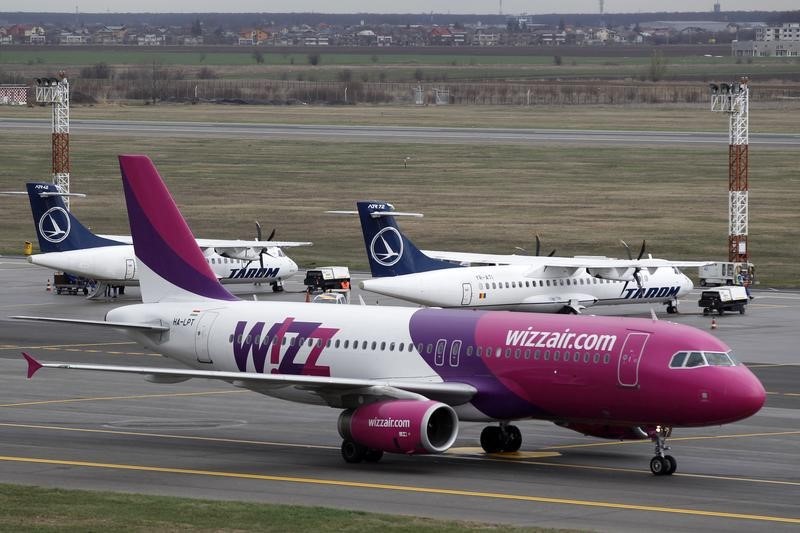AlphaTON stock soars 200% after pioneering digital asset oncology initiative
Investing.com -- Shares of Wizz Air (LON:WIZZ) declined on Thursday after the Hungarian low-cost carrier reported weaker-than-expected financial results for the first quarter and chose not to issue full-year guidance, citing ongoing uncertainty.
The airline also signaled a softer revenue outlook for the current quarter, weighing further on investor sentiment.
For the three months ended June 2025, Wizz Air generated revenue of €1.43 billion, just shy of the €1.44 billion consensus estimate.
EBITDA came in at €300.2 million, falling notably below the €348 million forecast. Net profit for the quarter was €38.4 million, broadly in line with analyst expectations of €39 million.
Capacity, measured by available seat kilometers (ASK), rose 11% year over year, a touch below the 12% anticipated by the market and Jefferies’ 13% projection.
Revenue per available seat kilometer (RASK) increased by 2.1%, again slightly underperforming the expected 2.5% gain.
The airline’s load factor edged up by 0.1 percentage point from the prior year to reach 91%.
On the cost side, total cost per available seat kilometer (CASK) rose 3.8%, exceeding both Jefferies’ estimate and the market consensus.
Fuel CASK declined by 14.2%, falling just short of expectations for a 15-16% drop, while non-fuel (ex-fuel) CASK rose sharply by 14.2% compared to consensus estimates of 11%.
Wizz Air expects capacity growth in the second quarter to be in the high single digits and aims to return to 15-20% annual ASK growth by fiscal 2026.
However, it anticipates flat RASK and load factor in the coming quarter. Fuel CASK is expected to decline further, while non-fuel CASK should improve compared with first-quarter levels.
The airline ended the period with a fleet of 236 aircraft and now expects 35 planes to be grounded during the fiscal year due to ongoing issues with Pratt & Whitney GTF engines, an increase from the 34 previously forecast for the first half.
Wizz also said it has hedged 73% of its fuel needs for fiscal 2026, up slightly from 71% in its last update. Net debt to EBITDA improved to 4.1 times, down from 4.4 times at the end of fiscal 2025.
Jefferies noted that the EBITDA shortfall implies a 3% cut to full-year consensus and warned that weaker second-quarter performance could push full-year net profit forecasts from €194 million down to between €74 million and €94 million.
The brokerage itself projects net profit of just €38 million. “We are cautious on Wizz’s yield and cost recovery,” Jefferies wrote, adding that accelerating ASK growth may put pressure on yields as the market absorbs added supply, while cost challenges are likely to be exacerbated by the airline’s exit from the Middle East.
